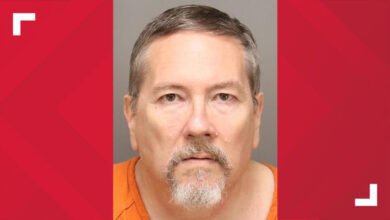Outrage as Mother Confronts School for Shielding Teacher Who Flogged 3-Year-Old
Physical Abuse

A Mother’s Cry for Justice
A mother identified as Jennifer Nwafor took to Facebook in anguish, accusing her daughter’s school in Abakpa Nike, Enugu State, of shielding a teacher who brutally flogged her three-year-old child.
Viral videos showed Nwafor, visibly distraught, confronting school staff and demanding to see the teacher responsible. “See what a teacher did to my child in school today, a three-year-old child,” she cried. “They employed a mad woman as a teacher, and they hid her.”
Her posts quickly spread across social media, drawing widespread outrage. The videos showed the child’s legs marked and swollen, evidence of a severe beating. In a later update, Nwafor said her daughter had developed a fever but was recovering under medical care.
This incident, while shocking, is not isolated. It reflects a deeper systemic failure in teacher screening, classroom oversight, and child protection enforcement in many Nigerian schools.
Gaps in Recruitment and Classroom Supervision
The Enugu case exposes a pattern in early education settings, schools employing untrained or unvetted teachers without the emotional or professional capacity to handle children, especially at the nursery level.
Across Nigeria, many private schools operate with little regulation. Teachers are often hired without verified credentials, background checks, or training in child psychology.
Corporal punishment, despite being discouraged by education authorities, remains normalized in several institutions.
Some of the most common failings include:
Lack of Proper Vetting: Schools rarely conduct criminal or behavioral checks before hiring.
No Child Protection Training: Many teachers receive no guidance on nonviolent discipline or classroom management.
Weak Oversight: Proprietors often prioritize staffing needs and cost-cutting over safety standards.
Fear of Reputational Damage: Some schools conceal incidents of abuse rather than report them, allowing offenders to continue teaching elsewhere.
When such systems fail, the classroom, meant to be a place of safety and learning, becomes a place of trauma.
Why Safe Recruitment and Teacher Training Matter
Child safeguarding does not begin when abuse is reported; it begins at the point of hiring. Every teacher allowed into a classroom should have passed through a system that screens for competence, emotional maturity, and child protection awareness.
Safe recruitment practices would include:
Background Verification: Checking for past allegations of violence or misconduct.
Professional References: Contacting previous employers and verifying teaching experience.
Mandatory Child Protection Certification: Ensuring teachers understand nonviolent discipline and child rights.
Clear Codes of Conduct: Outlining zero tolerance for physical or emotional abuse.
A school’s responsibility extends beyond academics. When children as young as three suffer harm in classrooms, it signals the urgent need to professionalize teaching at all levels, especially early childhood education, where trust and tenderness are most vital.
Lessons for Schools and Education Authorities
The Enugu incident reveals that policy without enforcement is just paper. Education ministries at the federal and state levels must strengthen oversight of private schools, mandate teacher vetting, and impose penalties for abuse or concealment.
In the school system, every adult should be properly trained in child safeguarding and protection so they understand what it means to work with children.
Internal complaint systems must be accessible to parents, and every report of abuse must be investigated transparently.
Protecting a school’s image can never outweigh protecting a child’s life and dignity.
A Call to Action
A three-year-old should never learn fear in a school that is supposed to be a safe environment for them. What happened in Enugu is a reminder that every school should integrate child safeguarding and protection, not as an option but the foundation of education itself.
Parents, school owners, and policymakers must demand and enforce safe recruitment, proper training, and accountability for all educators.
Every child has the right to protection from all forms of physical or mental violence while under the care of any adult.
When a teacher lifts a cane instead of a hand to guide, when a school shields instead of reporting abuse, it betrays that right. To restore trust in our classrooms, Nigeria’s schools must put safety, empathy, and integrity back at the heart of learning.





